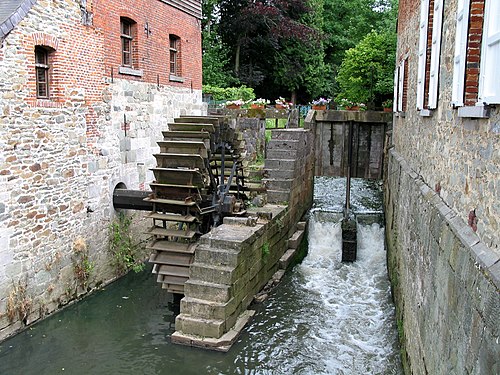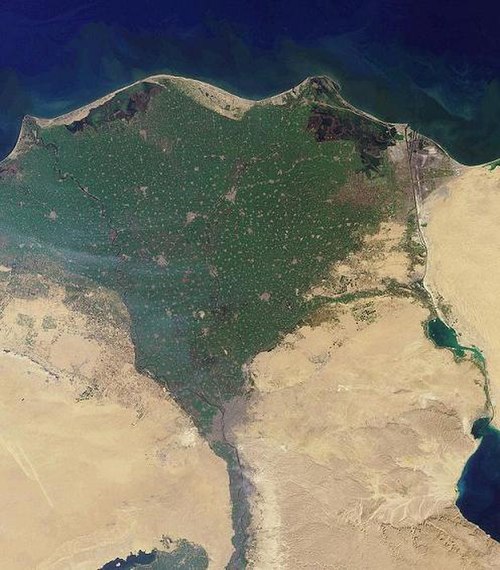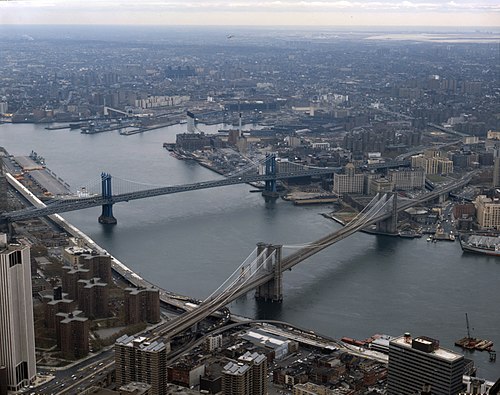Rivernoun
A large and often winding stream which drains a land mass, carrying water down from higher areas to a lower point, ending at an ocean or in an inland sea.
Rivernoun
Any large flow of a liquid in a single body.
Rivernoun
(poker) The last card dealt in a hand.
Rivernoun
(typography) A visually undesirable effect of white space running down a page, caused by spaces between words on consecutive lines happening to coincide.
Rivernoun
One who rives or splits.
Riververb
(poker) To improve one’s hand to beat another player on the final card in a poker game.
Rivernoun
One who rives or splits.
Rivernoun
A large stream of water flowing in a bed or channel and emptying into the ocean, a sea, a lake, or another stream; a stream larger than a rivulet or brook.
Rivernoun
Fig.: A large stream; copious flow; abundance; as, rivers of blood; rivers of oil.
Riververb
To hawk by the side of a river; to fly hawks at river fowl.
Rivernoun
a large natural stream of water (larger than a creek);
Rivernoun
a large natural stream of water flowing in a channel to the sea, a lake, or another river
Rivernoun
a large quantity of a flowing substance
Rivernoun
used in names of animals and plants living in or associated with rivers, e.g. river dolphin.
River
A river is a natural flowing watercourse, usually freshwater, flowing towards an ocean, sea, lake or another river. In some cases, a river flows into the ground and becomes dry at the end of its course without reaching another body of water.
Sloughnoun
The skin shed by a snake or other reptile.
Sloughnoun
Dead skin on a sore or ulcer.
Sloughnoun
(British) A muddy or marshy area.
Sloughnoun
(Eastern United States) A type of swamp or shallow lake system, typically formed as or by the backwater of a larger waterway, similar to a bayou with trees.
Sloughnoun
(Western United States) A secondary channel of a river delta, usually flushed by the tide.
Sloughnoun
A state of depression.
Sloughnoun
(Canadian Prairies) A small pond, often alkaline, many but not all formed by glacial potholes.
Sloughverb
(transitive) To shed (skin).
Sloughverb
(intransitive) To slide off (like a layer of skin).
Sloughverb
To discard.
Sloughverb
To commit truancy, be absent from school without permission.
Sloughadjective
Slow.
Sloughnoun
A place of deep mud or mire; a hole full of mire.
Sloughnoun
A wet place; a swale; a side channel or inlet from a river.
Sloughnoun
The skin, commonly the cast-off skin, of a serpent or of some similar animal.
Sloughnoun
The dead mass separating from a foul sore; the dead part which separates from the living tissue in mortification.
Slough
imp. of Slee, to slay. Slew.
Sloughverb
To form a slough; to separate in the form of dead matter from the living tissues; - often used with off, or away; as, a sloughing ulcer; the dead tissues slough off slowly.
Sloughverb
To cast off; to discard as refuse.
Sloughnoun
necrotic tissue; a mortified or gangrenous part or mass
Sloughnoun
a hollow filled with mud
Sloughnoun
a stagnant swamp (especially as part of a bayou)
Sloughnoun
any outer covering that can be shed or cast off (such as the cast-off skin of a snake)
Sloughverb
cast off hair, skin, horn, or feathers;
Sloughnoun
a town in south-eastern England to the west of London; population 119,400 (est. 2009).
Sloughverb
shed or remove (a layer of dead skin)
Sloughverb
get rid of (something undesirable or no longer required)
Sloughverb
(of dead skin) drop off; be shed
Sloughverb
(of soil or rock) collapse or slide into a hole or depression
Slough
Slough () is a large town in Berkshire, England (within the historic county of Buckinghamshire), 20 miles (32 km) west of central London (Charing Cross) and 19 miles (31 km) north-east of Reading. It is in the Thames Valley and within the London metropolitan area at the intersection of the M4, M40 and M25 motorways.












































































